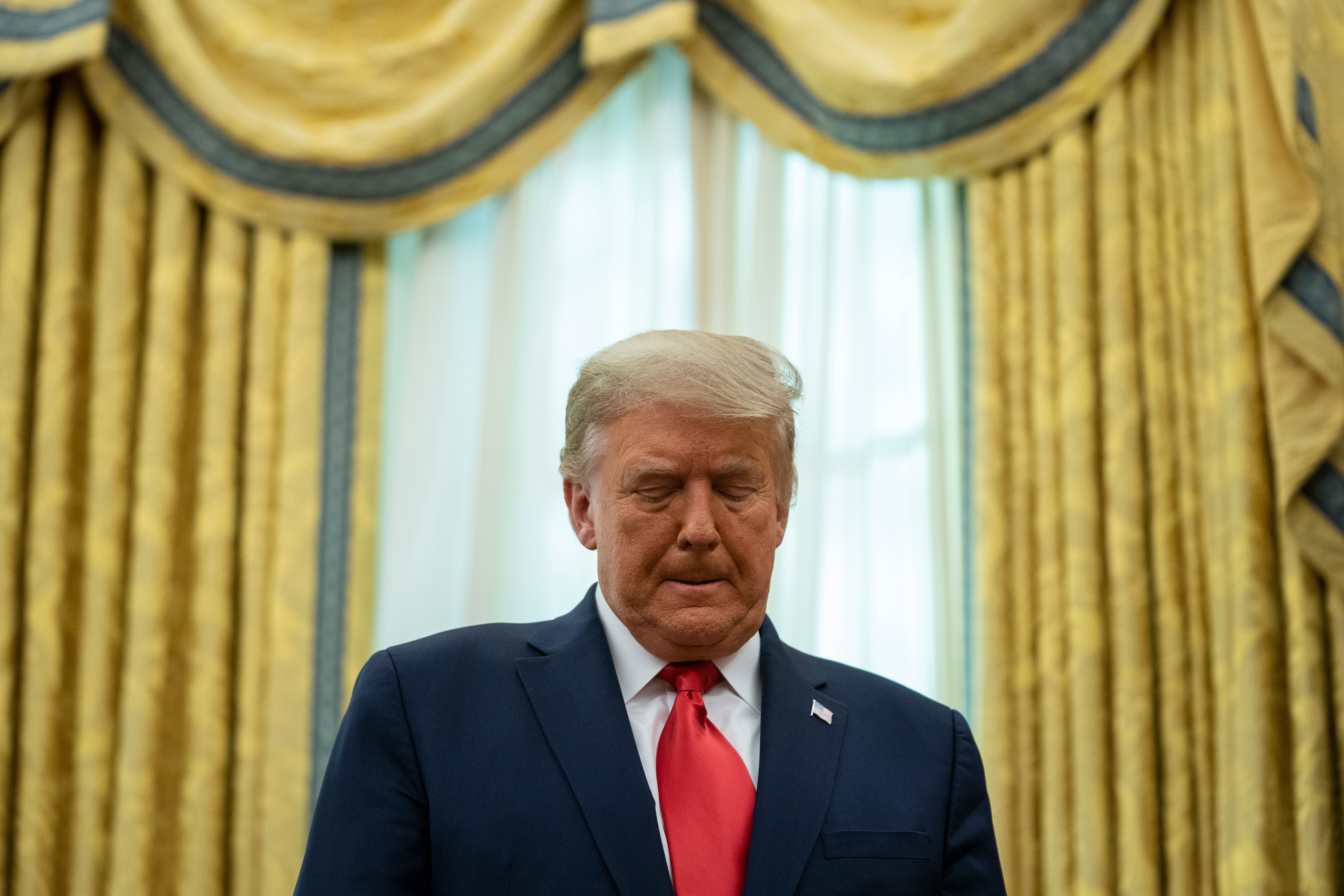‘Frankly, I don’t know’: Trump’s Covid vaccine czar says he can’t explain president’s new executive order
‘Frankly, I’m staying out of this. So, I can’t comment. I honestly don’t know’
Your support helps us to tell the story
From reproductive rights to climate change to Big Tech, The Independent is on the ground when the story is developing. Whether it's investigating the financials of Elon Musk's pro-Trump PAC or producing our latest documentary, 'The A Word', which shines a light on the American women fighting for reproductive rights, we know how important it is to parse out the facts from the messaging.
At such a critical moment in US history, we need reporters on the ground. Your donation allows us to keep sending journalists to speak to both sides of the story.
The Independent is trusted by Americans across the entire political spectrum. And unlike many other quality news outlets, we choose not to lock Americans out of our reporting and analysis with paywalls. We believe quality journalism should be available to everyone, paid for by those who can afford it.
Your support makes all the difference.President Donald Trump’s Covid-19 vaccine czar has admitted to not knowing the specifics surrounding a controversial executive order the White House was expected to unveil, which would reportedly seek to prioritize the US over other countries during the vaccination distribution process.
Dr Moncef Slaoui is a pharmaceutical executive and the chief science adviser to the administration’s “Operation Warp Speed,” created earlier this year as part of an effort to ramp up vaccine research and build a pathway to immediate nationwide distribution when a vaccination for the novel virus was found.
He was pressed in an interview by ABC News’ George Stephanopoulos on Tuesday over the executive order, as well as new reports that said the Trump administration turned down offers in the summer to buy additional doses of the Pfizer vaccine — a move that could potentially limit the nation’s access to more vaccine doses as the pharmaceutical company works to fulfill orders it made with other countries during that time.
“Pfizer is now saying they’re not going to have the doses we need until June or July,” Mr Stephanopoulos said to Mr Slaoui as he nodded. “Is there anything the government can do — Operation Warp Speed can do right now — to help them with those supply-chain issues, make sure we can get vaccines to people who need them as soon as possible?”
Dr Slaoui said his team was “comfortable we are going to be getting vaccines to people as soon as possible” without indicating a specific time frame, besides saying “all of it” would be done by midyear 2021. It was not clear whether he meant the full population in the US would be able to get vaccinated by then, or if he was referring to those most vulnerable to the virus.

Trump fails to deliver on his promise of 300 million vaccines in 2020
White House falls short of the president’s calls for hundreds of millions of vaccine doses before the New Year
When Mr Stephanopoulos asked him to explain the executive order that reports said was on the way, Dr Slaoui declined to provide any clarity.
The host of the program noted how Pfizer’s deals with other countries — made at a time when the federal government had reportedly declined their offers — would “limit the supply” to the vaccine in the US.
“Frankly, I don’t know,” the Operation Warp Speed chief said in response. “And, frankly, I’m staying out of this. So, I can’t comment. I honestly don’t know.”
Mr Stephanopoulos appeared stunned. “You don’t know?” He asked, noting: “You’re the chief science adviser for Operation Warp Speed.”
Dr Slaoui reiterated that he was confident the vaccine would be distributed across the US.
The Covid-19 pandemic has killed nearly 270,000 Americans nationwide since the outbreak began earlier this year. As other countries battle back the rate of infections, the US has seen a surge in cases in part due to many states easing coronavirus restrictions in an effort to jumpstart the economy.
The Trump administration has meanwhile been forced to scale back its expectations for the distribution of Covid-19 vaccinations from the “300 million” the president called for during the summer. Instead, it appeared an estimated 20 million people would be able to receive the vaccine before the New Year in the US.

Join our commenting forum
Join thought-provoking conversations, follow other Independent readers and see their replies
Comments